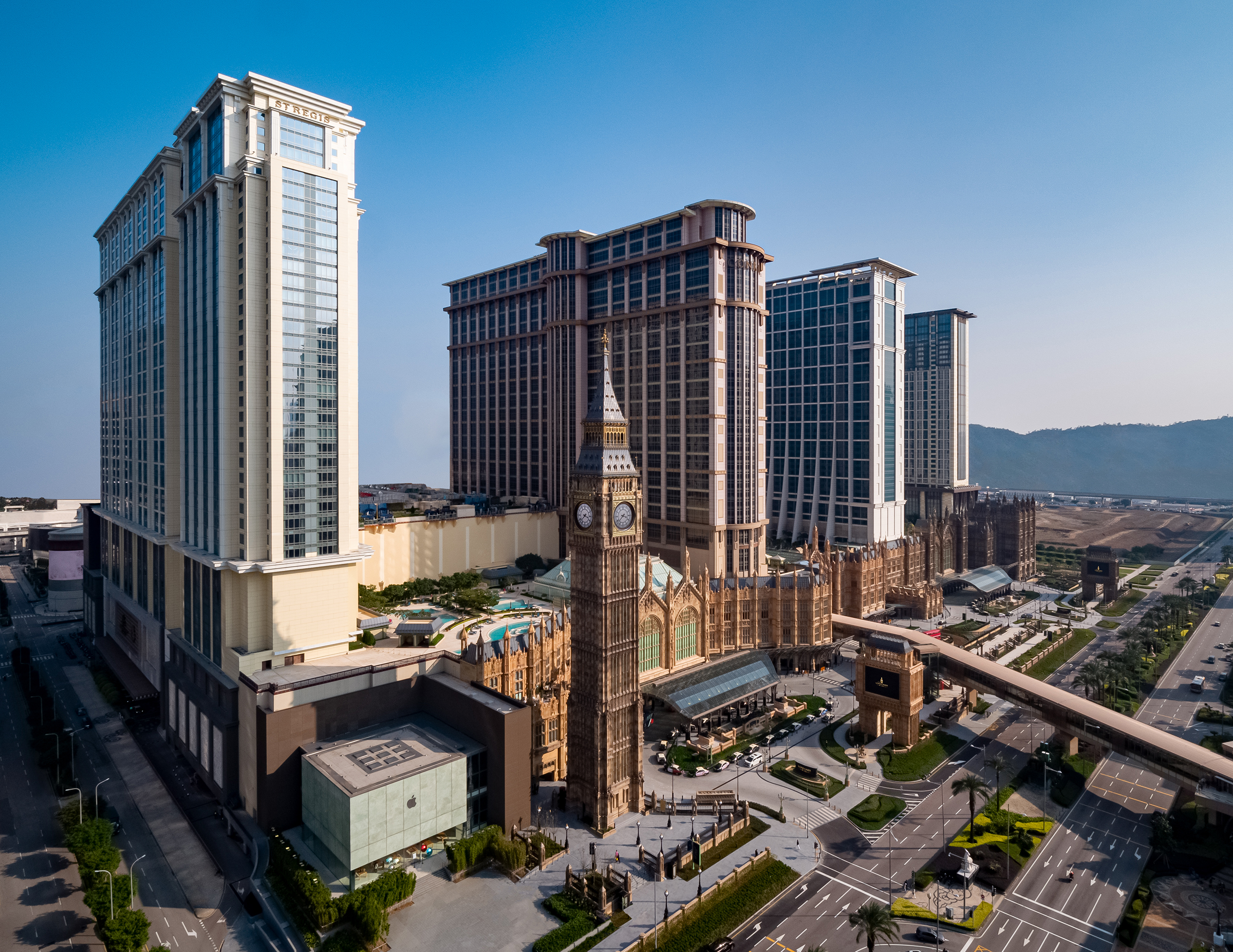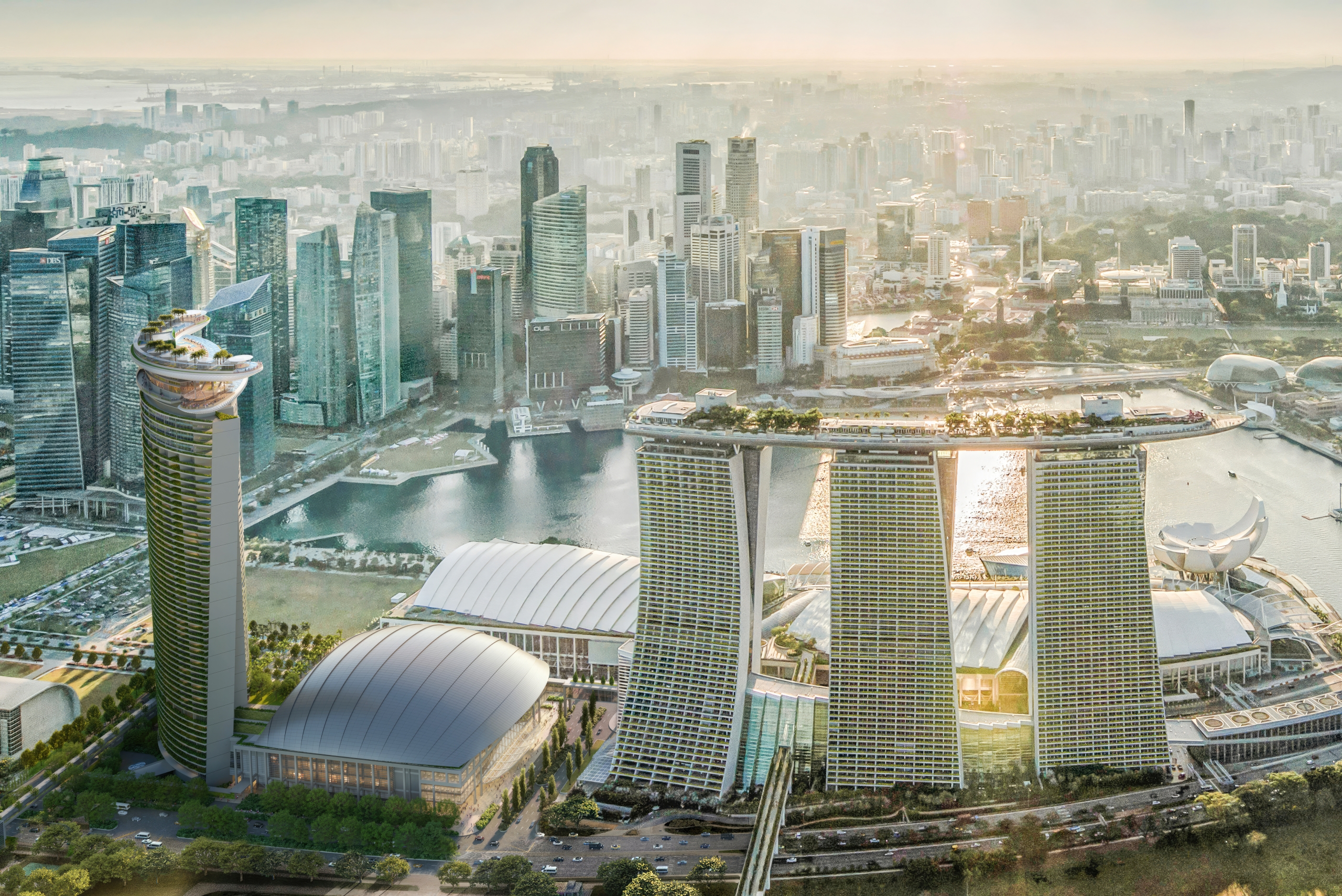News | November 26, 2025
The Low-Carbon Journey: Sands ECO360 Drives Successful Emissions Reduction Peformance
In October, Sands was named to Newsweek’s America’s Greenest Companies 2026 list recognizing corporate advancements in managing sustainability in four identified areas, including reducing greenhouse gas emissions – one of Sands’ top environmental priorities.
In 2021, the company set a target to reduce carbon emissions by 17.5% from a 2018 base year during its 2021-2025 environmental, social and governance (ESG) reporting cycle. In 2024, the company announced a parallel target of 30% carbon emissions reduction, in line with the Paris Agreement’s pathway to limit global warming to 1.5°C.
As of the end of 2024 when Sands last reported on its ESG performance, the company had maintained carbon emissions reduction levels exceeding both targets, with scope 1 and 2 emissions down 50% from the 2018 base year.
“While we’re pleased with the results of our latest emissions reduction reporting, we must continuously balance the demands of operating large-scale integrated resorts with growing energy needs and the priorities of our global sustainability commitment,” Katarina Tesarova, senior vice president and chief sustainability officer, said. “However, the ingenuity with which we approach this delicate balance has proven successful, and we continue to introduce new initiatives while maintaining past performance enhancements.”

The Sands ECO360 global sustainability program guides the company’s efforts to reduce carbon emissions in three areas:
Energy Efficiency
Sands identifies and executes energy-efficiency projects through the global Sands ECOTracker program, which provides a framework for planning capital expenditures, managing energy efficiency projects and defining pathways for investments in innovative solutions.
Last year, Sands completed 28 projects that reduced energy consumption by 21,696 megawatt-hours and netted $3.1 million in estimated annual energy savings. Projects have included energy audits and equipment retrofits and replacements such as rightsizing exercises and evaluating new technologies to improve performance, reliability and efficiency.
For example, Marina Bay Sands achieved up to 80% energy reduction in select retrofitted air-handling units last year. Other efforts have included installing daylight sensors, upgrading room control units and auditing the meeting and convention center to determine energy-savings opportunities for the space’s high-variability energy usage.
In Macao, Sands China’s projects have centered on conducting energy audits and automating various resort systems to better match energy needs and drive savings. For example, the company automated fan systems in parking garages to align operations with air quality changes detected from traffic flow.

Renewable Energy
As of Sands’ latest ESG reporting in 2024, 25% of the company’s energy came from renewable sources, an increase from 8% in 2021. Renewable energy sourced last year included 370,000 megawatt-hours of energy attribute certificates (EACs) procured to complement on-property generation.
Building on Sands’ experience with employing solar photovoltaic (PV) systems in its portfolio of buildings, Sands China is trialing PV panels on The Venetian Macao’s meeting and convention center rooftop to determine if solar energy can be used for electric bus and car charging stations, as well as back-of-house equipment rooms.
Transportation
Sands focuses on electrifying its equipment and transitioning guest shuttle and Team Member commuter buses to electric and alternative fuel sources.
For example, Sands China has added electric limousines to its fleet and operates the Cotai Water Jet carbon offset program, which enables passengers to purchase carbon offsets with their ticket purchases. The company encourages passenger participation in the program by underwriting carbon offsets on one day each month, and offsets support sustainable management of grasslands in China and a wind farm in Thailand.
In Singapore, Marina Bay Sands has continued integrating more EV-based transportation for company operations, as well as expanding its EV infrastructure with additional charging stations for Team Members and guests.
To learn more about Sands’ environmental initiatives, read the latest ESG report: https://www.sands.com/resources/reports/.